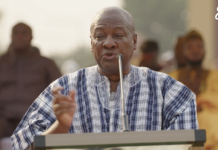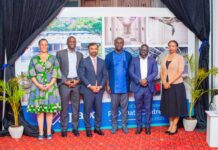
Prologue
“Vibes from Accra, Ghana…
I am currently in Accra, Ghana, having just arrived for the Inauguration of the New President Nana Addo of NPP, a cde & friend.
1. More than 40 heads of State expected for the Saturday, tomorrow, inauguration. 2. The roads are clean, well maintained & fantastic. 3. New constructions everywhere. 4. Ghana currency to $US is 1:4. 5. Handing over of power smooth… 6. Elections are transparent every 4 yrs. 7. They have 325 radio stations, 16 Television stations.
8. As for Newspapers, I haven’t finished counting. I am still counting before I start reading them. 9. Freedom of speech is excellent,
10. The tolerance levels are incredible, debates are robust and thorough.
11. President appoints Ministers who are confirmed by parliament through public interviews on TV & radio. 12. Citizens matter, people govern in this country…Elections are meaningful and not a waste of time but an investment in a secure future…I am still seeing and learning more. I shall keep you posted.”
The 12-point message quoted above is from a Zimbabwean Advocate who was in Accra for the activities marking the political change-over of January 7 2017. It was a whatsApp to a Ghanaian friend who passed it on to me and granted me permission to reproduce on condition that I leave out the original sender’s name. That has been duly complied with.
The message is a partially accurate snapshot of my country. The country I have been representing abroad for these past two and a half years and where I am heading back to in just over a week. This snapshot does not show a country in crisis, distress or a basket case. It shows a country making progress over the years up to January 6 2017 when those observations were made. “Change” may have occurred in a political sense but even that was the result of the progress my country had been chalking all the time…
This is a country where Champaign is the drink of choice of many people I know, where top range automobiles are a dime a dozen, where some mansions would embarrass Premier League, La Liga, Bundesliga or other top division European footballers. This is not a miserable country. This is not a hungry country.
But also true are the very disadvantaged people, discrepancies, dislocations and underdevelopment that abound. Those who know such things will hold up interest rates, inflation, debt, taxation, salaries/wages, utilities and other “indicators” to score their points. The kind of things that are of concern to managers of the global economy…Others too will point out the environmental degradation, poverty, sanitation problems, youth unemployment, lifestyle illnesses and social indiscipline that exist…
In my foreign travels, and I did a fair amount before my diplomatic posting, being a Ghanaian always attracted respect. Ghana to many Africans, is that one place where African liberation/pride of the Black person was born and where certain standards (like in the 12 points above) continue to be set and maintained. In Namibia and Botswana, Ghana is held in the highest esteem and the name of our founding father, Osagyefo Dr. Kwame Nkrumah remains the brightest star of the African universe. The Head of Mission’s residence in Windhoek, until recently, was located on Dr. Kwame Nkrumah Avenue between Sam Nujoma Drive and Nelson Mandela Avenue – quite an honour.
I am in an ambivalent state of mind: I am happy to be coming home – Home Sweet Home – and also worried about my stress-levels hitting the roof because I am coming home to meet self-inflicted national cancers that were blighting us when I was leaving and which, if anything at all, have become more malignant. I am talking about the quagmire of social indiscipline that our country has sunk in to…I am not making this up: We are all complaining! You cannot be enthused about leaving a haven of order into that kind of quagmire.
Only 26 years of independence, after a long-drawn out bloody liberation struggle, compared to our 60, the Namibians have done well for themselves in social discipline, law and order.
Let us take the City of Windhoek, which until last year was voted the neatest city in Africa. It lost that place of pride to Kigali, the capital of Rwanda, and they are not taking it lightly in City Hall. The youthful Mayor of Windhoek has made it a matter of national pride to regain that position. In size and population, Windhoek is nowhere close to Accra. The entire population of Namibia is just a little under three million and Accra alone is over three million, but that cannot be an excuse for the mess in many parts of Accra, our number one city…
In Kigali, they have given environmental sanitation an almost sacrosanct status. Their banning of plastic bags is the stuff of single-minded determination…
Take our so called “Okada”. Where we could not handle them, due to what, I cannot fathom, in Kigali they have been developed into an efficient and affordable public transportation alternative, creating jobs and public convenience. I once asked a young lady in Kigali why she used that particular service. Her answer was simple: It takes me directly to my door, it costs less, I do not have to mingle with strangers and it is safe. Unlike the downright flouting of traffic regulations (often with the police looking on) by motorcycle riders in Ghana, the exact opposite obtains in Kigali; they are usually the first to stop when the lights turn amber/red. It is the same in Windhoek. Traffic lights are respected with regimental discipline! There is no honking on the streets of Windhoek. Only taxis have that privilege and it is to advertise their presence to prospective passengers and involve only one or two honks…
Sometime last year, the City redirected taxis from a popular stretch of Sam Nujoma Drive (near the Ghana High Commission) to decongest the place; there was no politicization, no resort to industrial action! Road cleared and businesses breathed…Check how many times we have tried to decongest parts of the Central Business District (CBD) of Accra and other Ghanaian cities.
Windhoek is a city you do not see uncompleted buildings rotting away. They start buildings, public or private, and complete the buildings within reasonable time. So when I saw a building in Klein Windhoek (an upmarket suburb) standing uncompleted, forlorn and deserted, my curiosity was spiked. I was told the owner had defied the zoning regulation that said buildings should not exceed a certain height in that neighbourhood. He had managed to get an exemption from the City but the neighbours rallied and sued him and the city! The judge agreed with them and slapped an injunction on it! If I may repeat, the neighbours rallied…and so it was standing as testimony to a city that does not brook indiscipline.
In the CBD, every few meters or so are litter bins so you have no excuse to litter. After enjoying a bar of chocolate, I have often kept the wrapper to the next litter bin or if I miss it and others, I simply put it in my pocket until I get home to dispose of it properly.
1. Buildings rise only on serviced plots
2. No open stinking drains
3. No cheating you out of your change in retail/petty trading (petit corruption) – as the cashless economy gets entrenched. Shops provide you your change to the last cent!
4. Professions properly regulated
5. Religious “noise” at a minimum or even non-existent
6. All government vehicles clearly marked and only the President does not use the green GRN number plate. From the Vice President, through to the Prime Minister, to cabinet ministers to the ordinary public servant entitled to a government vehicle, no hiding who owns the vehicle: The People/Government of Namibia.
7. Alcohol sale strictly regulated. Shops display the signs clearly that you cannot buy alcoholic beverages after 7pm on weekdays and 1pm on Saturdays and none at all on Sundays and holidays – only in restaurants and bars.
8. No years advance for rent. You pay the first month down-payment and that’s it.
9. Rent, quotations and other payments strictly in Namibian $ and NOT US$. Even as foreign missions our rent quoted and paid in local currency. No exorbitant “good will” or several months or years advance required.
10. Etc., etc., etc…
Epilogue
No society is perfect, the shanty towns on the outskirts of Windhoek expose a soft under belly that needs taking care of but even they seem to have “method in their madness”…As a diplomat, in pursuing your formal bilateral responsibilities, you must also be on the look-out for the best practices that you can take home when the time comes – you owe that to the taxpayer who funded your tenure. I am coming with many of them in my memory bank but would they be of any use back home and is the Ghanaian society ready and willing to abide by rules and practices that will raise our living standards?




